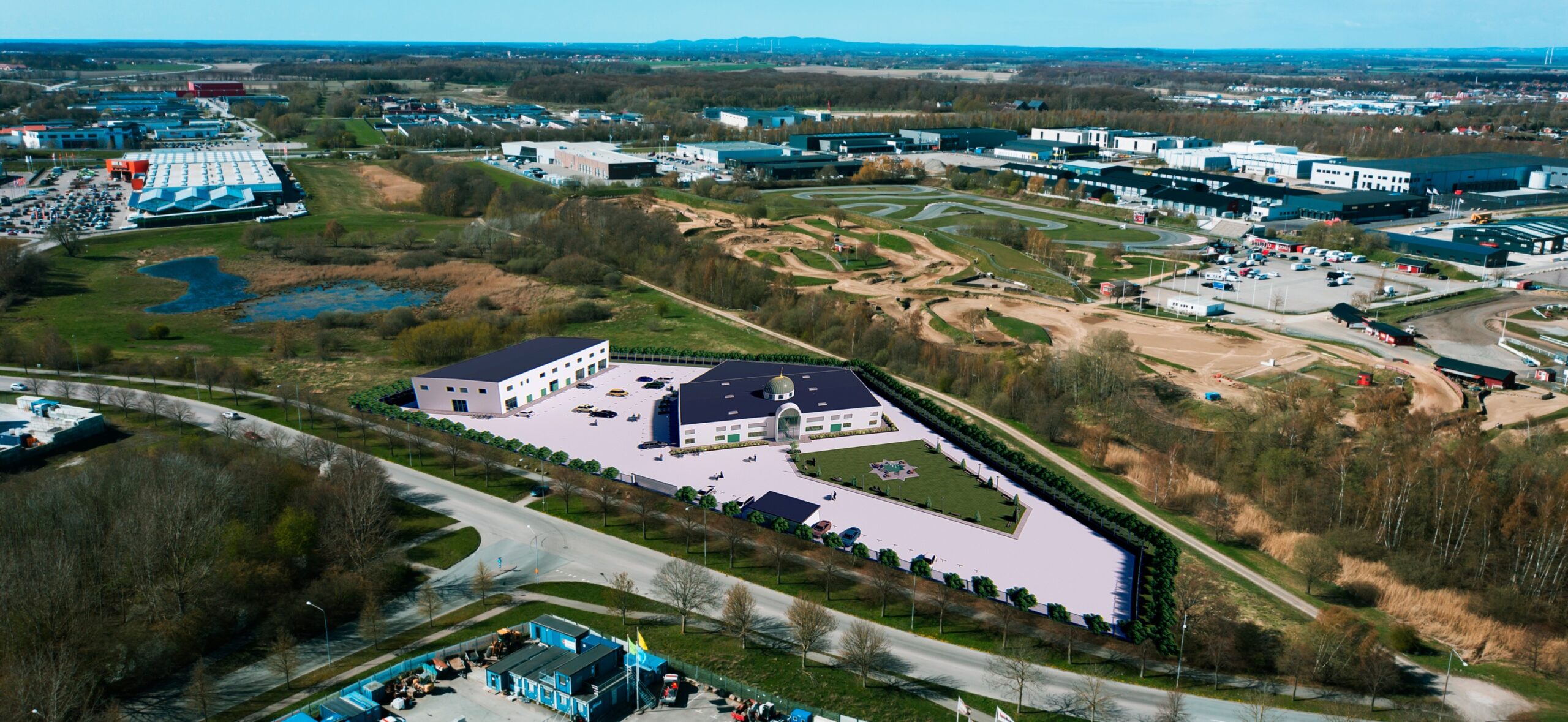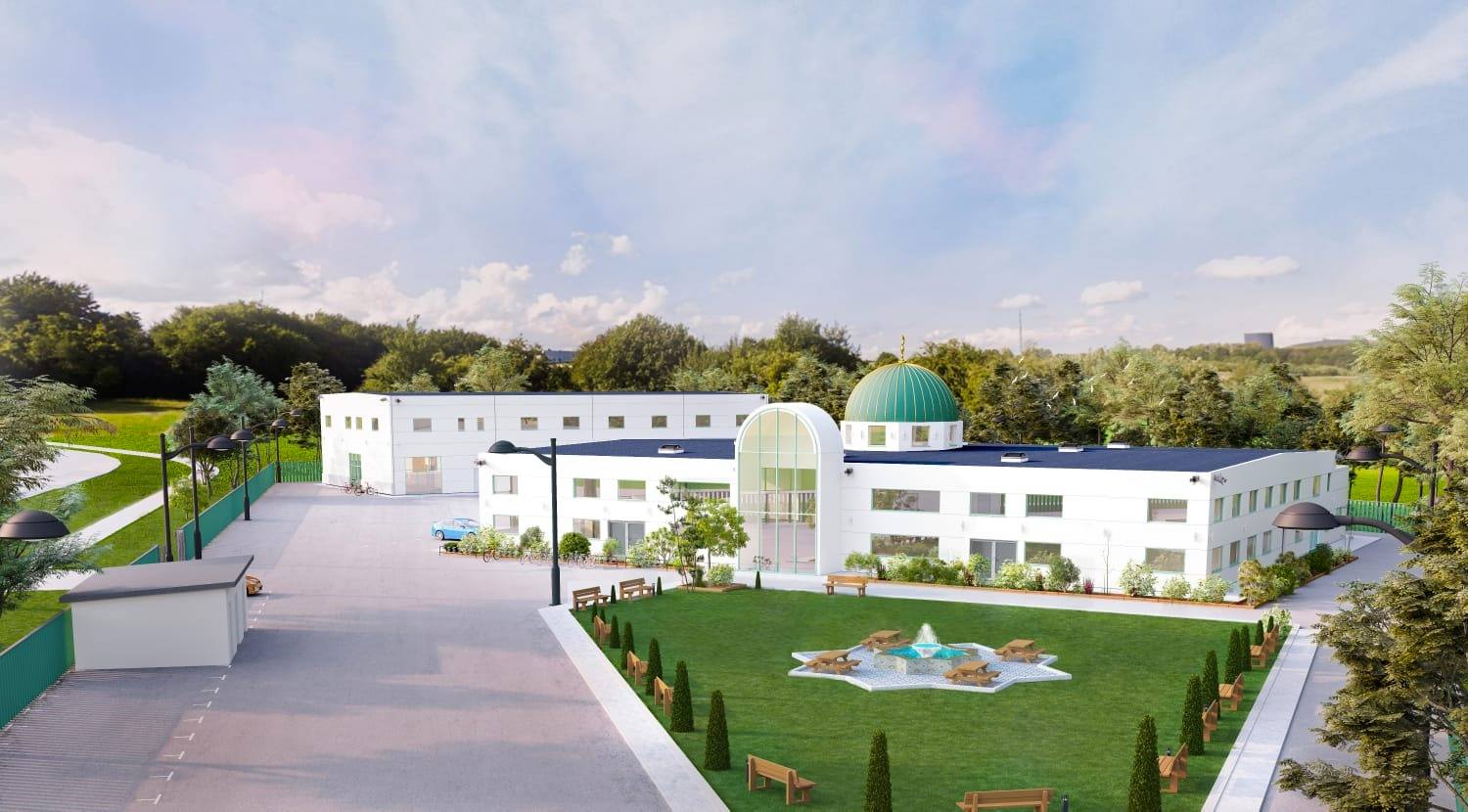
Sweden’s Mosque Count Skyrockets 4,200% in Just 25 Years
In less than 25 years, estimates say the number of Muslim congregations in Sweden has surged from a few to about 300. While Christian churches are closing down, an increasing number of settlements are seeing the establishment of Muslim prayer spaces: some newly constructed mosques – usually with foreign funding, others converted commercial properties or basements. There are no official statistics as to the precise number, what is being taught in them, and the source of financing for their activities. Any attempts at examining these questions run the risk of being labeled Islamophobic.
Estimated numbers vary, but in 2000 the most often quoted number of purpose-built permanent mosques, usually complete with minarets and domes was seven. The Swedish Agency for Support to Religious Communities (SST) estimates there are roughly 300 prayer spaces today, including informal spaces like re-purposed storefronts or basements.
This is an almost %4200 increase in 25 years,
Swedish news portal Samnytt points out, noting the actual number is likely higher as there is often vagueness surrounding what is classified a mosque or prayer space.
An example of this is Masjid Aysha, also known as the Ayshamo Mosque, which is operated by the Scandinavian Islamic Organization (SIO), and is located on Sankt Eriksgatan in Stockholm. According to information on the mosque’s website, it has been operating for about 20 years and is regularly used by thousands of people from different parts of the world. Friday prayers are held in multiple languages, including Swedish, English, Urdu, and Arabic. However, it is unclear whether Masjid Aysha is officially registered as a mosque in Sweden, as there is no public and up-to-date list of registered mosques. The organization behind the mosque, the Scandinavian Islamic Organization (SIO), is registered as a nonprofit association.
Scandinavia and Northern Europe’s Largest Mosque Project
A number of new mosques are being built across the country. One such project is in Helsingborg, described as “the largest mosque in Scandinavia,” where more than SEK 68 million (over €6 million) has already been raised through donations. According to Samnytt, the money was collected through influencers and campaigns on social media platforms such as Instagram and TikTok, as well as initiatives like “Moskehjalpen.” However, the fundraising is also taking place internationally, and it remains unclear where the millions are coming from.

The Helsingborg mosque has posted several videos on social media celebrating that key fundraising milestones have been reached.
A bejegyzés megtekintése az Instagramon
In Stockholm’s Skarholmen district, the construction of what is planned to be Northern Europe’s largest mosque remains on the agenda, although the project has also faced sharp criticism. The funding for this project has come in part from the City of Stockholm, but also from foreign sources. When Stockholm’s Mayor Karin Wanngard visited Tensta last year to speak with residents, the leader of the Social Democrats stated that Sweden needs to build more mosques.
“This country has freedom of religion, we have countless churches and nowhere near as many mosques, so of course we need to build more mosques, as long as they are needed for people to practice their faith,”
she said.
According to the local newspaper Mitt i, the association behind the Skarholmen mosque project chose the Turkish construction company EMUG, which is linked to the Islamist Milli Gorus movement.
The organization has previously been criticized for anti-democratic values and antisemitism, as well as for promoting the replacement of the Western social model with an Islamic social order.
While the number of mosques in Sweden has grown rapidly, the topic has received relatively little public attention. As church attendance declines and empty churches close, more and more Muslim prayer centers are being established across the country – in former churches, in industrial or commercial spaces, and also as newly constructed mosques funded by foreign donors.
However, there is no comprehensive and up-to-date public maps showing how many mosques there are, and where they are located. There is also no public information on what activities they conduct, or how they are funded.
Initiatives aimed at increasing transparency are sometimes met with skepticism and are almost always labeled Islamophobic.
The Swedish Agency for Support to Religious Communities (SST) distributes millions in annual state support to Muslim organizations. According to SST statistics, the main beneficiaries include the Islamic Cooperation Council (ISR), the United Islamic Associations in Sweden (FIFS), the Swedish Muslim Association (SMF), and the Swedish Islamic Society (SIS). This money is then distributed to local congregations across the country. But this is not the only source of funding. In many cases, Swedish mosques have been partially or entirely funded by money from Saudi Arabia, Iran, Qatar, or Turkey. For Saudi Arabia alone, the sums are said to amount to billions of dollars.
Critics argue that these regimes are not primarily supporting religious freedom but are using mosques to expand geopolitical and religious influence. Sweden’s Security Service (SAPO) and the Swedish Civil Contingencies Agency (MSB) have also issued warnings about infiltration.
Radicalization, Islamist Separatism, and Limited Transparency
In France and the United Kingdom, several cases have been documented where mosques funded from abroad were found to promote Salafist or Islamist ideologies. In some instances, these mosques became hotbeds of radicalization.
Sweden has also seen alarming developments: the mosque in Gothenburg funded by Saudi Arabia has been criticized for publishing materials containing misogynistic messages. The Imam Ali mosque in Stockholm, linked to Iran, has been accused of inviting speakers who glorify martyrdom and sacrifice for Islam. Yet there seems to be no one willing to fully and systematically assess the financial backing and what occurs within the walls of these mosques.
One of the most obvious challenges is that any attempt at oversight is often met with accusations of xenophobia. This has created an environment in which questions about religion, funding, and societal impact have become too sensitive to ask – even when those questions are entirely legitimate. This is reflected not least in the cautious assessments by the Swedish Agency for Support to Religious Communities.
Tags:

